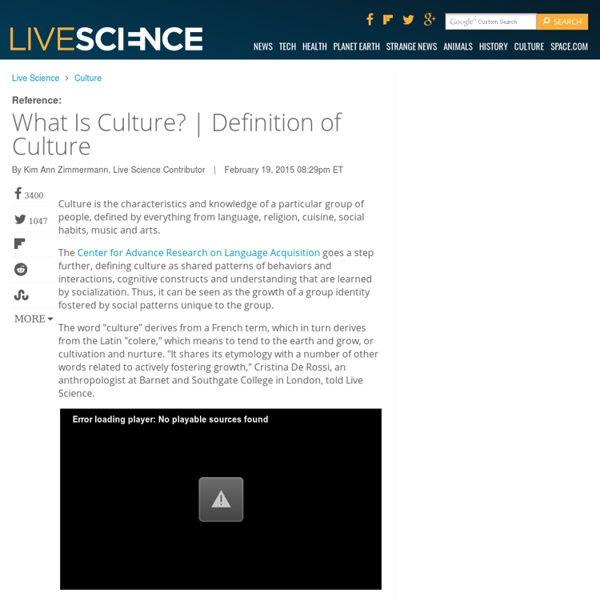Office of Study Abroad | Michigan State University
Culture... influences our expectations of what is appropriate or inappropriate is learned reflects the values of a society frames our experiences provides us with patterns of behavior, thinking, feeling, and interacting In summary, culture affects every aspect of daily life - how we think and feel, how we learn and teach, or what we consider to be beautiful or ugly. However, most people are unaware of their own culture until they experience another! In fact, we don't usually think about our culture until somebody violates a culturally-based expectation or we find ourselves in a situation where we have the feeling that WE violated somebody else's cultural expectations, but are uncertain how. So much of what causes conflict or confusion is the part of the culture that we can't see or touch. Cultural misunderstandings and conflicts arise mostly out of culturally-shaped perceptions and interpretations of each other's cultural norms, values, and beliefs (those elements below the waterline).
Putting hip on the map: Real estate markets heat up when a neighborhood turns cool
"Location, location, location," the real estate adage goes. In fact, a number of complex variables drive the value of land, particularly for residential areas. They range from schools and quality of life, to amenities and safety, to prejudices, perceptions and social status. In recent decades, a new variant of social status has entered the real estate equation, and it has since transfigured downtown New Orleans and other American cities. It's the curious cultural phenomenon known as cool. Neighborhoods that a decade or two ago were viewed as dirty, dangerous and disregarded now rank among the region's hottest real estate markets, turned around courtesy of an emerging social charisma that may be described as "hip" or "cool." True, these neighborhoods boast other advantages. Cityscapes conversations Friday, March 14, at 7:35 a.m. What changed is that they became cool on the social scene. And that's when, and where, it affects real estate. Where is the geography of cool?
Les différentes cultures dans le monde
People, culture and lifestyle - About Australia
Australia is a product of a unique blend of established traditions and new influences. The country’s original inhabitants, the Aboriginal and Torres Strait Islander peoples, are the custodians of one of the world’s oldest continuing cultural traditions. They have been living in Australia for at least 40 000 years and possibly up to 60 000 years. The rest of Australia’s people are migrants or descendants of migrants who have arrived in Australia from about 200 countries since Great Britain established the first European settlement at Sydney Cove in 1788. In 1945, Australia’s population was around 7 million people and was mainly Anglo–Celtic. Since then, more than 6.5 million migrants, including 675 000 refugees, have settled in Australia, significantly broadening its social and cultural profile. Today Australia has a population of nearly 23 million people. Shared values At the same time, everyone is expected to uphold the principles and shared values that support Australia’s way of life.
Image Others Have of US
What Is Subculture? - Theories, Definition & Examples
Subcultures are those groups that have values and norms that are distinct from those held by the majority. Let's examine a few subcultural theories and test our knowledge with a quiz. Explore our library of over 30,000 lessons Click "next lesson" whenever you finish a lesson and quiz. Got It You now have full access to our lessons and courses. You're 25% of the way through this course! Way to go! Congratulations on earning a badge for watching 10 videos but you've only scratched the surface. You've just earned a badge for watching 50 different lessons. You have earned a badge for watching 20 minutes of lessons. You have earned a badge for watching 50 minutes of lessons. You have earned a badge for watching 100 minutes of lessons. You have earned a badge for watching 250 minutes of lessons. You have earned a badge for watching 500 minutes of lessons. You have earned a badge for watching 1000 minutes of lessons.
Influence culture perse, échanges culturels
What is culture?



